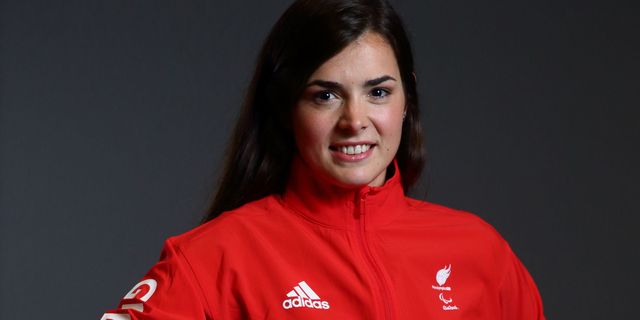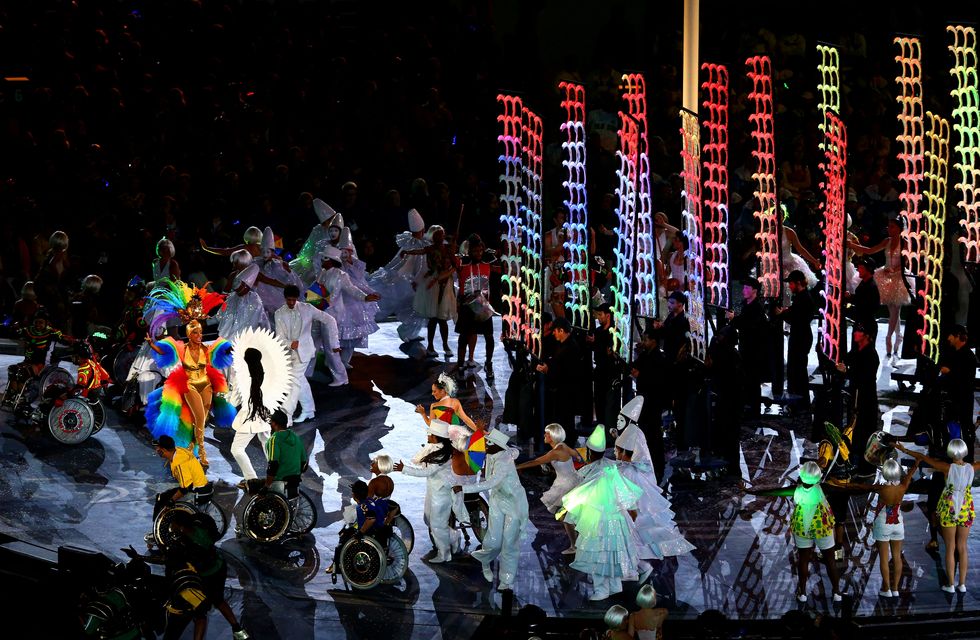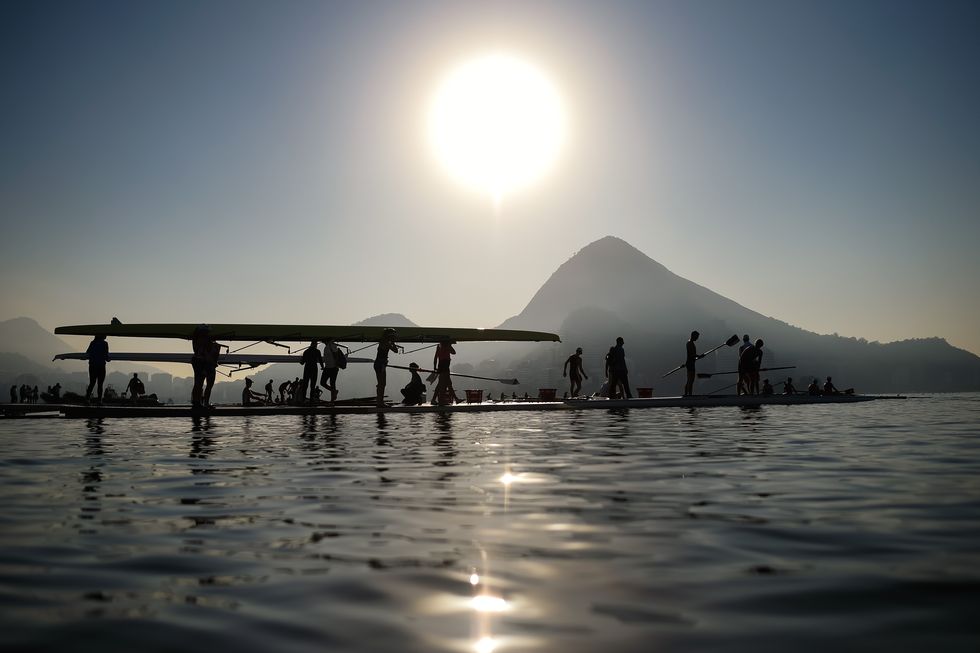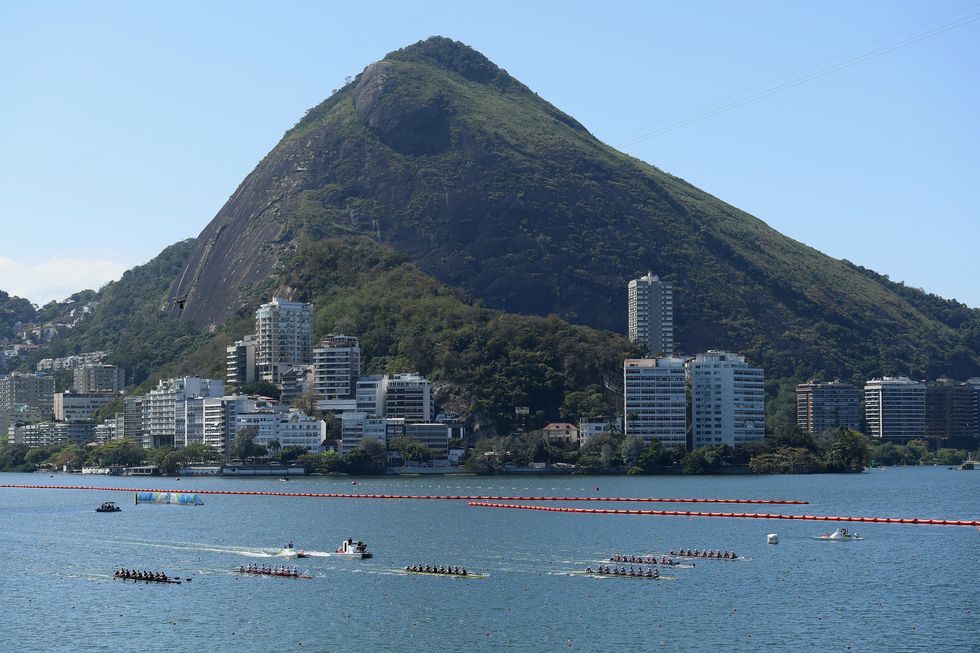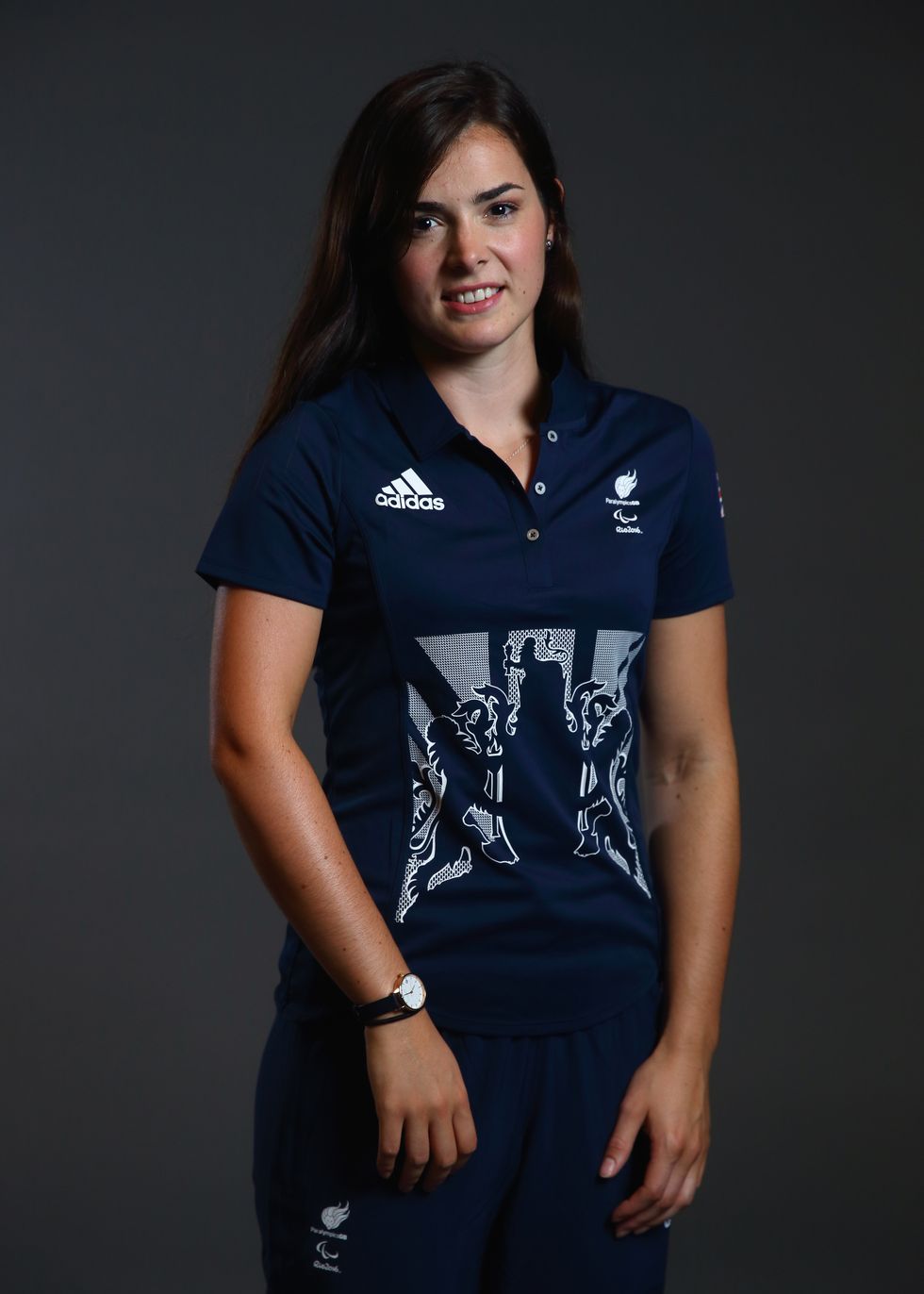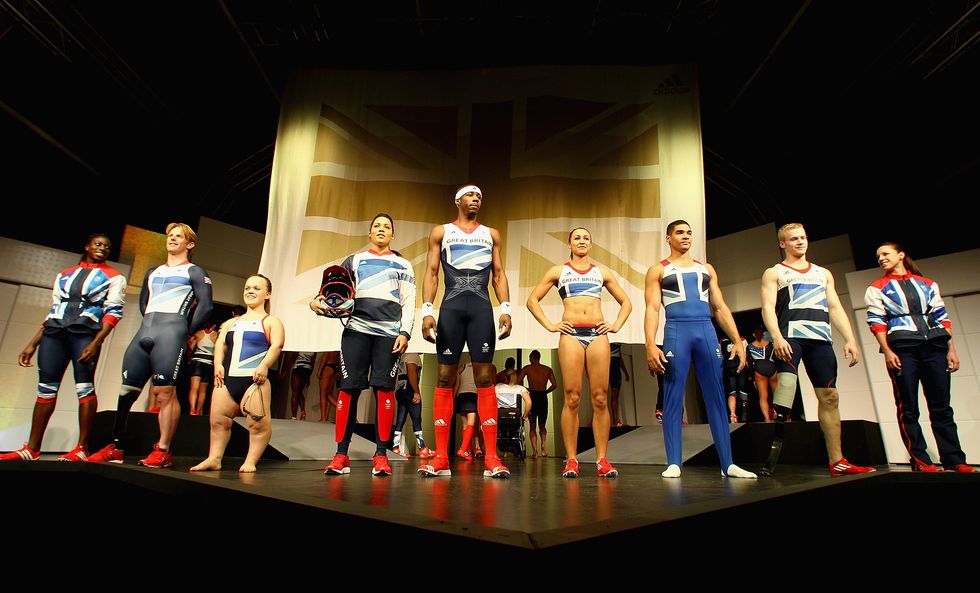What were you doing three years ago?
Looking for a new house?
Planning a mini-break with friends?
Mulling over whether to stay in your dead-end job or embark on the stressful process that is job applications?
Well, Grace Clough was training to become a professional para-rower for Great Britain – with no previous experience.
Today, the 2016 Rio Paralympics kicks off and will see Great Britain target 121 medals - one more than at London 2012 – over the next two weeks.
But our eyes are firmly fixed on Grace Clough – a 25-year-old athlete making her Paralympic debut after becoming an LTA mixed coxed four double World Champion, just three years after taking up rowing.
We caught up with the Paralympian the day before she flew out to Rio to find out about her meteoric rise to sporting fame and the perception of disability in sport:
Can you tell us a bit more about your disability?
It's called Erb's Palsy which is the paralysis of my right shoulder. I sustained the disability during birth and had two nerve grafts (at six and seven-months-old), which has helped to improve my mobility, but I still have weaker movement of my shoulder and arm.
Have you always been sporty?
I played basketball at county level during school and then was captain of the university team during my degree at the University of Leeds.
How did you get involved in rowing?
I wrote about the media's portrayal of disability for my dissertation in my final year and in the May, I found an advert for a SportsFest Paralympic talent day in Sheffield. As I'm from Sheffield, I thought it was worth going along to see what it was about. On the day, I was approached by the athletics, rowing and cycling teams and asked whether I would be interested in taking up a sport.
The rowing team persisted in contacting me and after graduating I thought it might be worth giving rowing a go as I didn't have a job to tie me down as yet.
The rowing team asked me to get classified (a test which assesses a player's disability to help place them in a category in a sport, depending on their mobility) and they found I fitted in the LTA (Legs, Truck, Arms) category, as I have minimal disability but still have strength in my arms and legs.
It sounds like a quick progression – from novice to athlete in a month?
It was! After classification, I was asked to go to Banyoles in Spain for an intense two-week training camp and on my return, I joined Nottingham Rowing Club with the women's high performance team.
The commute from Sheffield to Nottingham was hard and the GB coaches wanted to fast-track my progress so I moved to London in January 2014 and became a full-time athlete. I never saw myself getting to this point.
So, has it been plain sailing ever since?
Not exactly. I lost my first seat race but I won the next and was placed in the mixed coxed four for the 2014 World Championships where we won gold. I loved every minute of it.
What happens in the mixed coxed four?
The boat is made up on two boys and two girls – it's quite rare to mix genders in sport. In a competition, the Paralympic squads (made of four boats) race a distance of 1km.
What has been the best moment of your career so far?
Last year, my team won Gold at the 2015 World Championships and the other three boats won silver. In the first World Championship, the experience was surreal. I was thinking, 'I've been doing this for six months, I can't row!'.
But, for the second championships, I felt much more confident. Although, we had a struggle on despite our hands against the USA team (who we beat by half a second) because we were down at the half way point and had to fight to the line.
Describe a typical week of training
I wake up at 6am, eat porridge with some seeds and fruit and drive to training in Caversham, Reading for a 7.30am start. The team then does stretching for 30minutes and we start a long row around 8am.
After that, we come back and tuck into a second breakfast, normally of eggs, made by our fantastic chef Omar, before starting on the rowing machine and weight sessions. We do weight training every other day for up to 1.30hrs.
We have Thursdays off so while everyone else sees Friday as the start to the weekend, it's the start to the week for us.
Do you have to restrict yourself from eating certain things?
I have a big sweet tooth so I'm allowed to have chocolate, but it's all about balance. Before rowing, I was a vegetarian but when I started the sport professionally, my coaches suggested I eat meat to get more protein.
At first I was reluctant but one day I went home and decided to eat some chicken and haven't looked back since. Once I started to eat meat, my scores jumped drastically. We're not made to eat anything we don't want to but protein is an important part of our diet.
You're about to compete in Rio, are you all packed and ready to go?
I've actually left it til the last minute. I've just had my nails done – French tips with a union jack on one nail. After all, you only compete in Rio once. But, I've got most of my clothes ready to go.
We were given two bags of kits a few weeks ago after our fittings so I'll take that, my pillow, a lucky toy from my boyfriend and a few nice dresses. When we saw the unveiling of the GB kits designed my Stella McCartney, we were all so excited. We've also been able to choose from a variety of formal outfits, designed by ASOS.
Have you got any family and friends going out to Rio with you?
I'm very lucky because I have 11 people coming out including my parents, step-parents, boyfriend, friends, auntie and uncles – it's the whole Sheffield clan.
How long are you out in Rio for?
Twenty days in total. I compete on day 11.
How are you feeling about the competition?
I'm eager to get out there. We've had a whole year of solid training so I'm excited to put all the good work into practice now.
A Brazilian publication recently photoshopped images of able-bodied models with amputations to promote the Games. How did this make you feel?
If anything I was confused. There are so many disabled models looking for work so why spend the time photoshopping able-bodied models? It's so confusing.
In terms of media coverage of the Paralympics, do you think it's well presented?
The 2012 London Olympics changed the perception and stereotypes surrounding disability and since then there's been a huge push in the media to put the spotlight on the Paralmpics. Channel 4 has been fantastic in raising the profile of disability in television, be it with presenters or staff behind the scenes. Any push is a positive push.
When you're a Paralympian, you have to be just as good and as dedicated an athlete as the able-bodied athletes. Medals are just as sought after and well-deserved.
I'm a proud Paralympian.
Watch live coverage of the Paralympic Games on Channel 4.

Katie O'Malley is the Site Director on ELLE UK. On a daily basis you’ll find Katie managing all digital workflow, editing site, video and newsletter content, liaising with commercial and sales teams on new partnerships and deals (eg Nike, Tiffany & Co., Cartier etc), implementing new digital strategies and compiling in-depth data traffic, SEO and ecomm reports. In addition to appearing on the radio and on TV, as well as interviewing everyone from Oprah Winfrey to Rishi Sunak PM, Katie enjoys writing about lifestyle, culture, wellness, fitness, fashion, and more.
